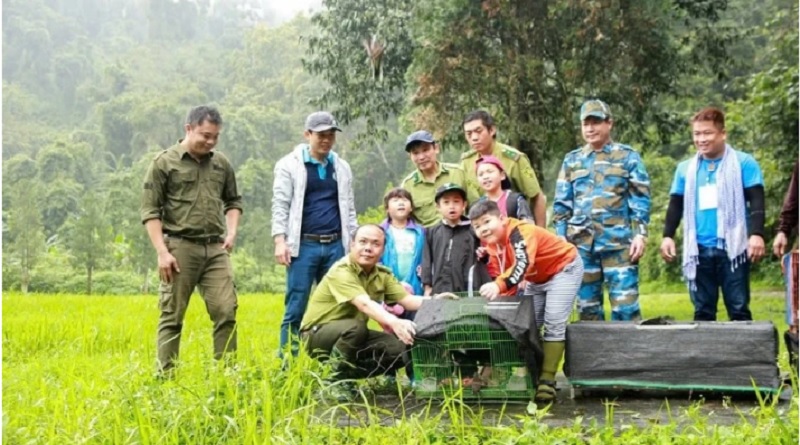Improving the effectiveness of biodiversity conservation
Vietnam is among the 16 countries with the highest biodiversity in the world, with three main ecosystems: marine, terrestrial and wetland, containing about 62,600 species of organisms, including 106 endemic species.

Cuc Phuong National Park rangers and local people released wild animals back into the natural environment.
Our country is also a center of genetic resources of crops and livestock with thousands of valuable varieties of rice, crops and livestock. Natural ecosystems not only maintain biodiversity but also play an essential role in sustainable economic development, such as agriculture, forestry, tourism and traditional medicine, contributing to ensuring food security and creating jobs.
According to the World Economic Forum, 50% of global GDP depends on natural resources and ecosystem services, demonstrating the importance of biodiversity to the economy and the environment. Biodiversity conservation helps improve society's resilience to climate change, maintain genetic resources, provide medicinal materials, construction materials and fuel, and create rich natural landscapes and unique national cultures. Therefore, this is a valuable resource for the country's sustainable development.
To promote biodiversity conservation by 2030 and vision to 2050, Vietnam needs to improve its legal system, improve management capacity, and increase public awareness. In addition, it is necessary to expand international cooperation, transfer technology, and promote scientific research to maximize the value of biodiversity. Building an information system and managing digital data also plays an important role in protecting natural resources and adapting to increasingly complex climate change.